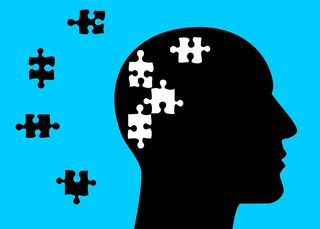Personality
Schizophrenia and What Happens Before
The prodrome phase is a critical period of time before schizophrenia strikes.
Posted September 14, 2019 Reviewed by Kaja Perina

Occasionally, I hear people with schizophrenia say that they have had the condition their entire lives. However, that is most likely not true.
Like many other biological illnesses, schizophrenia has a typical age of onset. Very few people in their 30’s develop Alzheimer’s Disease. It can happen but is very rare. Comparatively, schizophrenia has a starting point that typically does not present until later in a person’s teen years, or into their early to mid 20’s. Some people develop it in the thirties, but this is less common. Generally speaking, when a person develops schizophrenia later in life, they have a better prognosis.
With schizophrenia, the first psychotic symptoms are referred to as a “first psychotic break” or “first episode.” Prior to this first break, an individual usually undergoes significant changes in their personality. They may lose interest in things they used to love such as playing a musical instrument, participating in sports, working, or spending time with friends and family. Eventually, they may even lose the motivation to get up in the morning and go to school or to work, or lose interest in self-care, forgetting to eat or shower.
This phase immediately prior to a first psychotic episode is called the “prodrome phase.” The prodrome phase is usually identified only in hindsight. While it is going on, there is no way of knowing if normal personality changes and experiences that come with adolescence are occurring, or if a brain disease is the influencer.
My first psychotic break happened upon returning from a trip to Africa. I was twenty years old, and a college student living far away from my family. After having lived in Africa for three months serving those living in poverty, I returned to the United States. Prior to the trip, I had scored A’s in hard classes, but suddenly I could not even pass my exams. It was my senior year, and I was supposed to graduate in May. Instead, I dropped out and became homeless.
Looking back, it is hard to tell exactly when my prodrome began. However, I believe that schizophrenia was emerging during my freshman year of college.
The University of Southern California in Los Angeles was my dream school, and I began classes there in the fall of 1999. When I arrived, I was extremely busy with difficult classes, research, and serving as concertmaster of their community orchestra. My parents were concerned that I was overextended and had no real social life, but they were also proud of my research achievements and grades. And looking back, all my friends were busy and highly competitive. I blended in.
The difference with me was that I could never stand to take a short break without focusing all my thoughts on my research or upcoming exams. I never went to parties or social activities, even when I had time.
Then, following the first semester of my freshman year, as my main focus centered on working in the research lab, my grades began to plummet. Confused, I was obsessed with doing “something more.” I was convinced that my research work could lead to awards which I could not win by getting A’s in my classes. I never considered the reality of how lower grades would impact my future.
During my sophomore year my main focus was on school. I scored very high grades in engineering physics, advanced biochemistry, and a differential equations class which was known for its difficulty. It seemed I had found my way again.
But I took another turn for the worse during the beginning of my junior year, when 9/11 happened. Again, I began to look for “something bigger” to do with my life other than to build a traditional career. I became obsessed with traveling. From that point on, my grades were consistently low. The second semester of my junior year, I took easy classes and scored C’s. I spent all my time planning an extended humanitarian trip to Africa.
It is so common for college students to go through a “junior slump” and score lower grades for a time. Also, sometimes, students are encouraged to travel overseas and learn about new cultures and languages, which I was doing. Again, I blended in. I had no idea that schizophrenia was about to emerge.
Common prodromal symptoms may include social withdrawal, suspiciousness, grandiosity, distractibility, decreased school function, and hostility.
Parents and educators should be aware that schizophrenia can develop during a student’s high school or college years. When students have an alarming change in personality or loss of interest in things they used to love, which cannot be explained, it is important to look at their family history. Does mental illness run in the family? If it does, these students should be carefully assessed by a mental health professional to see if there are further warning signs. Even if there is no known history of mental illness in a person’s family, it is still important to pay attention.
High school and college students would greatly benefit from education regarding the warning signs of emerging schizophrenia. There is no shame in asking for help, and early intervention is vital to achieve the best possible outcome. Schizophrenia, bipolar disorder and depression are brain diseases which are treatable today. Despite having a psychiatric diagnosis, people who commit to long-term treatment can live happy and meaningful lives.




